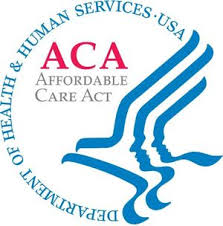

Some 6.4 million people breathed a sigh of relief on June 25. On that day, the Supreme Court ruled 6-3 in the King v. Burwell case to uphold the Affordable Care Act’s subsidy provision. The law provides federal subsidies in the form of tax credits to low-income individuals so they can purchase health insurance on state or federal exchanges.
Have the justices, especially the conservatives, suddenly developed compassion for the millions who would lose health insurance without the subsidies? Hardly. Chief Justice John Roberts’ majority opinion said the ACA was enacted to “improve health insurance markets,” reported the June 26 New York Times.
A slew of briefs supporting subsidies were submitted by hospital corporations seeking reimbursements for care, and health insurance companies concerned that without them millions of people would drop the policies. The court decided subsidies make good business sense.
The ACA was intended to insure many of the 47 million without coverage, those foregoing medical care or becoming bankrupt to obtain it. It contains some good provisions, such as requiring insurance companies to cover people with pre-existing conditions and provide free preventive health services for women. States were mandated to expand Medicaid to all adults earning up to 133 percent above poverty line or face financial penalties. Federal subsidies would be extended to other low-income individuals to purchase insurance policies.
Conservatives have repeatedly tried to overturn the ACA in Congress and fought the law in the courts ever since Congress passed it on March 23, 2010. The law survived a legal challenge when the Supreme Court affirmed it on June 28, 2012.
However, the high court handed the right wing a victory when it gutted a crucial ACA provision in the 2012 decision, which allowed states to opt out of expanding Medicaid without penalties. Today, 21 reactionary state legislatures, many in the South, refuse to expand this vital government program — even refusing billions of federal dollars to cover the costs. This has left millions of low-income individuals, many African American, without desperately needed medical coverage.
A Catch-22 in the ACA left workers earning below the poverty level and eligible for Medicaid — but denied it — ineligible for insurance subsidies.
Unsurprisingly, the pro-corporate Supreme Court has sabotaged campaign finance laws, opposed women’s health care in employer insurance plans, set back workers’ rights to sue bosses for wage discrimination and gutted part of the historic Voting Rights Act. The court issued two reactionary decisions on June 29, one allowing the use of a pain-causing execution drug, the other blocking a plan to limit toxic emissions from power plants.
Health care for people, not for profit!
Millions have gained health insurance under the ACA, many through Medicaid in Washington, D.C., and the 29 states that expanded the program. However, 36 million people are still uninsured — including those excluded from Medicaid — largely because of the expense. Without insurance, medical costs are prohibitive for many. Moreover, the ACA does not cover undocumented immigrants.
Even though the ACA is a progressive measure, it is still based on the capitalist for-profit system. Individuals have to buy policies in the marketplace. Deductible costs are too high, say many workers. Co-payments are increasing. Employees covered in company plans complain of expensive co-payments.
The United States is the only highly industrialized country without universal health care. Yet, this is the wealthiest country — that is, the capitalist class is the richest, but not the majority of the population. This country’s medical care is the most expensive. But it fails compared to that in 10 other countries in “access, equity, quality, efficiency and healthy lives,” said the Commonwealth Fund in June 2014.
This is because U.S. health care is an industry increasingly privatized by corporations and aimed at maximizing profits. Patients are asked about their insurance first — even in emergencies. Ability to pay factors into getting quality care, maybe any care.
The struggle must continue to block conservatives’ attempts to undercut the ACA, Medicaid or Medicare — and to demand Medicaid expansion in every state. “Improved Medicare for all,” raised by single-payer advocates, should be supported.
Ultimately the slogan “Free health care for all!” should prevail. It’s the capitalist system and the profit motive which stand in the way of this worthy goal.
Cuba has the model health care system. Quality, humane, free medical care is provided for everyone, paid for by the government. There is no health care industry, no profit motive. Health care is a basic human right and a top priority on the socialist island.
Raposo is a Portuguese Marxist analyst, editor of the web magazine jornalmudardevida.net, where this article…
By Alireza Salehi The following commentary first appeared on the Iranian-based Press TV at tinyurl.com/53hdhskk.…
This is Part Two of a series based on a talk given at a national…
Educators for Palestine released the following news release on July 19, 2025. Washington, D.C. Educators…
On July 17, a court in France ordered the release of Georges Abdallah, a Lebanese…
The following are highlights from a speech given by Yemen’s Ansarallah Commander Sayyed Abdul-Malik Badr…